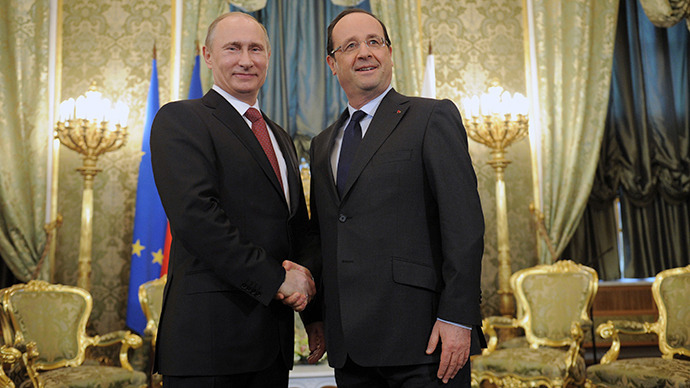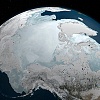Prospects for future cooperation between Russia and France in the Arctic
In
Log in if you are already registered
Arctic current publications often overlook France-Russia relations in the Arctic, though cooperation between the two countries in Northern latitudes is more than five hundred year-old. In 1586, the French explorer Jean Sauvage arrived in Arkhangelsk, where he stayed two month in order to establish trade relations with the Russians. When he came back to France, he wrote a manuscript describing Russian trade habits and customs in order to inform future generation of French sailors that would undertake another commercial trips to the Russian North. Until St. Petersburg was founded in 1703, Arkhangelsk was the only harbor city that would allow Russia to have access to European trade. The first French-Russian trade and friendship agreement was signed in Arkhangelsk[i]. Bruno Vianey, in his book “Le voyage de Jean Sauvage en Moscovie en 1586”[ii], highlights the importance of this expedition for what it represents the “first French expedition to Arkhangelsk, first travel story about a French man in Russia, first trade agreement, first French-Russian dictionary…” [iii]
Almost five hundred years later, France-Russia relations over the Arctic region are still active. The present article introduces the reader with the main fields of French-Russian cooperation in the Arctic, and presents what are France’s interests in the Arctic.
Source: P.Kotlyar/Total
Cooperation in resources exploitation
When one mentions France-Russia relations in the Arctic, one automatically thinks of cooperation in energy projects and resources exploitation. The French leading oil and gas company Total has been implanted in Russia since 1991, which is the year the company started its activity in the country. In Russia, Total is involved in four Arctic large-scale projects[iv] as a technical partner: the Kharyaga field in the Nenets Autonomous District, where the company has been producing oil for 15 years jointly with Statoil, Zarubezhneft and the Nenets Oil company; the Termokarstovoye field (Yamalo-Nenets region) in association with Novatek, the Russian second-largest gas-producing company; the Yamal LNG field, for which Total and Novatek signed a joint agreement to exploit the Yamal field’s resources in 2011. Another French company, Technip takes part in the project for the construction of an LNG plant[v]. Despite European sanctions against Russia, because of Russia’s position over the Ukraine crisis, Total declared on its website that the company “intends to strengthens its presence and to assert itself as a strategic partner for this country (i.e. Russia)”. The fourth project concerns the Shtokman field, which is located in the central part of the Russian sector of the Barents Sea. In 2008, the Russian leading gas company Gazprom initiated the creation of a joint venture Shtokman Development AG with Total and Statoil (Norway) to implement the three production phases of the Shtokman field. However in 2012, Statoil withdrew from the project and sell its share (24%) to Gazprom. The development of Shtokman, which is a risky project due to the probability of high waves, bitterly cold weather and huge icebergs, has been suspended because of technical reasons. Nonetheless, Total has offered Gazprom to re-launch the project if new technical solutions are found. The French and Russian companies are thus continuing feasibility research to exploit the field[vi]. Total is also involved in Siberia where the company assists the Russian oil company Lukoil to exploit shale oil reservoirs.
Cooperation in Artic development
Russia might also need French expertize and technology for the infrastructure development of its Arctic zone. In this respect, French global groups such as Vinci and Bouygues could bring their competence and know-how in terms of infrastructure, facilities and telecommunication for the economic, urban and social development of the Russian Arctic. Furthermore, resources exploitation and economy activity will undoubtedly bring about environmental risk and other challenges that Russia will have to cope with. French expertize in developing ecologically friendly technologies can once again be an asset for Russia’s development of its Arctic zone. Veolia is the French leading company in risk prevention technologies and focuses its activity on finding solutions to manage and optimize resources while increasing their efficiency from an environmental, economical and social standpoint[vii]. The company is specialized in water management, energy services and waste management.
Beyond profits there is also human relations
In 1957, the Soviets asked the French Arctic’s explorer Jean Malaurie to be the co-director of a French-Soviet Arctic Institute[viii] that would have engaged the participation of many French savants and researchers. However, because of the Cold War context the institute had not been created, but French-Soviet congresses between the Center of Arctic Studies (CNRS-EHESS) and the Russian Arctic Institute were organized every two years[ix]. In the late 1980s, Jean Malaurie was appointed head of the first scientific international expedition to Cape Dezhnev in front of the Bering Strait. In 1991, following the French-Russian first expedition to Chukotka, located in the Russian North-East, the State Polar Academy in St. Petersburg was created and Jean Malaurie was appointed president. The teaching of French as the university’s students’ first foreign language is compulsory, and the opening of an exhibition center on French-Russian expeditions to the Arctic since Henri IV is planned. In addition, the Arctic Institute Jean Malaurie has been created to give an international dimension to the Academy while cooperating with all the circumpolar peoples at the same time. Today, the Academy includes fifty-seven ethnic nations of the Russian Federation, including indigenous populations[x]. One of the main objectives is to enhance dialogue between Russia and these populations in order to protect their language and culture.
Another French man, Charles Weinstein, has dedicated more than twenty years of his life in Chukotka to defend the Chukchi language[xi]. According to him, the indigenous peoples of the North are fully part of Russia’s great cultural heritage, and the preservation of their language is essential to preserve their tradition, culture and identity. Amid several other publications related to the Chukchi language, he is about to publish the first Chukchi-French-English-Russian dictionary ever created. As far C. Weinstein is concerned, the preservation of Arctic peoples is a much more significant long-term challenge than resources exploitation that Arctic states have to deal with: “One day, oil will disappear, but what about cultures?”[xii], asks Charles Weinstein.
France in the Arctic
France is not an Arctic country, and because of the Paris Treaty’s conditions (1763), France does not have any territorial possession in the Arctic. The region has never been a top priority for France, but the Arctic new reality – climate change and the resulting economic opportunities – is making France to reconsider its interests and its strategy towards the High North. On February 14th, 2007, the French Senate via the Parliamentary Office for the Evaluation of Scientific and Technologic Choices (OPECST) published a full report based on polar research[xiii]. In 2009, Michel Rocard – former French Prime Minister from 1988-1991 – was appointed Ambassador for polar issues, including international negotiations on transport and environmental security. Since 2000, France is an observer member to the Arctic Council, which enables the country to assist to all the Council’s meetings, participate in the work of AC Working Groups, and submit statements at ministerial meetings. France is also a member of the Barents Euro-Arctic Council.
France’s interests in the Arctic can be split into three categories:
1) Energy projects.
2) Scientific and environmental activities: France has a permanent presence in Svalbard archipelago via the scientific research bases Charles Rabot and Jean Corbel[xiv], and leads about twenty research programs in the Arctic, for which France receives support from Canada, the U.S, Greenland and Sweden[xv]. The country is also concerned with environmental protection in the region, and issued in 2009 the environmental law n° 2009-967 according to which the Arctic region plays a central role in earth’s climate’s global balance. France also supports the creation of an international scientific observatory for the Arctic to protect the region’s environment and to regulate exploitation of the Arctic Ocean’s resources[xvi].
3) In case of a military crisis in the Arctic between the five coastal states, France would be indirectly involved due to its membership in the European Union and in the North Atlantic Treaty Organization, of which articles 5 of the treaty stipulates that an armed attack against one or more of the parties should be considered as an attack against all, and therefore is deemed to include an armed attack in return.
Source: RT
Conclusion
The present article has highlighted that cooperation between France and Russia in the High North has existed for centuries. Despite the current crisis over Ukraine and the resulting slowdown in French-Russian economic relations, joint energy projects in the Russian Arctic are still maintained, and the economic and social development of the Russian Arctic zone represents attractive prospects for further other French companies’ participation. France is Russia’s 6th European trade partner and more than four hundred French companies have a part of their activity in Russia. At the last annual French business forum organized in Paris on the topic “Réunions avec la Russie” (Meetings with Russia), French business circles have reaffirmed their intention to develop cooperation with Russia through the implementation of new investment projects, and the desire to lift sanctions against Russia[xvii]. French business elite indeed judges sanctions to be counterproductive for France’s economic interests.
[ii] Bruno Vianey, Le voyage de Jean Sauvage en Moscovie en 1586, Editions L’Âge d’homme, 2013. Also published in Russian « Путешествие Жана Соважа в Московию в 1586 », ТЕЗАУРУС (Ed.), 2012.
[iv] http://dialoguefrancorusse.com/fr/actualites-dialogue-franco-russe/economie/1115-la-cooperation-franco-russe-dans-l-energie.html
[ix] Ibid.
[xii] Ibid.
[xv] Ibid.





